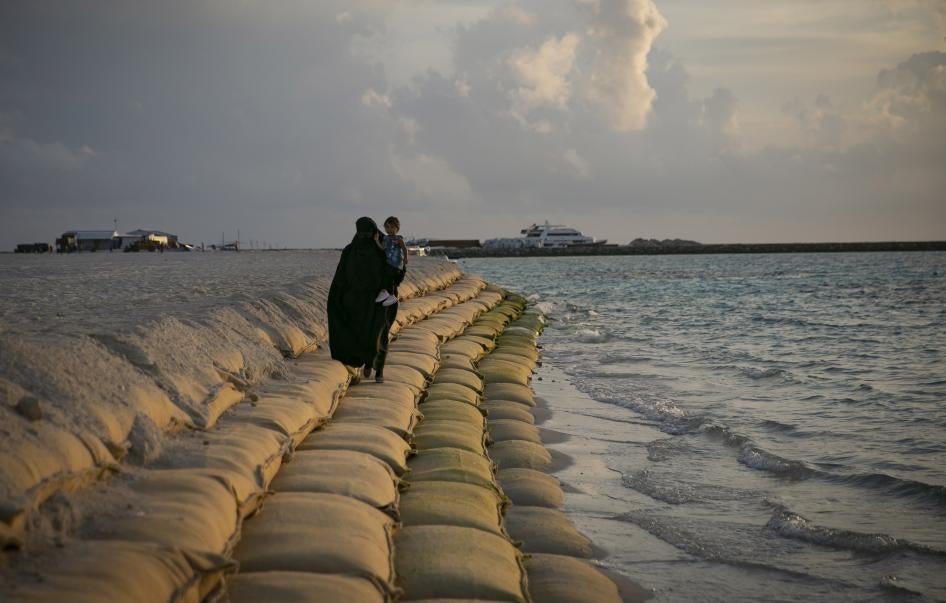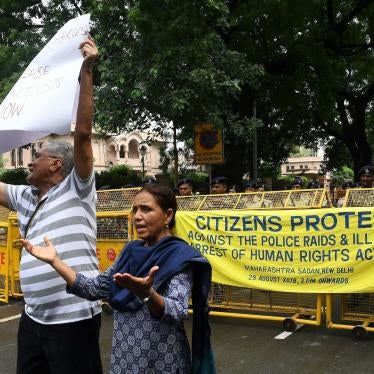(Jakarta) – The Maldives government failed in 2022 to enact critical reforms to the justice system and counter threats to free expression. It did not address longstanding abuses against migrant workers, LGBT people, and other at-risk groups, Human Rights Watch said today in its World Report 2023. The government carried out development projects without full consideration of environmental harm.
Maldives authorities have repeatedly failed to stand up to extremist Islamist groups and political leaders on human rights issues. The government did not carry out promised reforms to the Freedom of Assembly Act, and continued to use it to restrict peaceful protests. Police harassed and threatened journalists covering protests.
“The clock is ticking for President Mohamed Solih’s government, which promised human rights reforms but four years in, has little to show for it,” said Patricia Gossman, associate Asia director at Human Rights Watch. “The Maldives government should refocus attention on improving the justice system, supporting free expression, and protecting the most vulnerable communities.”
In the 712-page World Report 2023, its 33rd edition, Human Rights Watch reviews human rights practices in close to 100 countries. In her introductory essay, acting Executive Director Tirana Hassan says that in a world in which power has shifted, it is no longer possible to rely on a small group of mostly Global North governments to defend human rights. The world’s mobilization around Russia’s war in Ukraine reminds us of the extraordinary potential when governments realize their human rights obligations on a global scale. The responsibility is on individual countries, big and small, to apply a human rights framework to their policies, and then work together to protect and promote human rights.
The government has been unwilling to repeal provisions of the penal code that make adult consensual same-sex relations a criminal offense. In an apparent politically motivated concession to extremist groups, the authorities in August prosecuted a Bangladeshi national for engaging in consensual same-sex relations, resulting in a seven-month prison term. Prominent people and officials faced humiliating investigations linked to the case.
The United Nations Working Group on Discrimination against Women and Girls, following a September visit to the Maldives, reported that groups advocating extremist Islamist views were targeting women human rights defenders, and that the government was not doing enough to combat gender-based violence.
The government arrested three men for the disappearance of Ahmed Rilwan, a journalist, in 2014 and the murder of Yameen Rasheed, a blogger and government critic, in 2017. However, their trial has suffered numerous delays due to alleged threats by extremist groups against prosecution witnesses.
A fire in November in an overcrowded apartment building that killed 10 migrant workers highlighted longstanding abuses, including unsafe living and working conditions.
The Maldives government has had a strong voice in international forums on climate-related issues, including at the UN General Assembly and the COP27 climate conference. However, controversial development plans – including a massive dredging and reclamation project in the southernmost atoll of Addu, famous for its biodiversity and extensive coral reefs – went forward despite concerns raised by the government’s own environmental impact assessment about risks to the livelihoods of affected communities.








